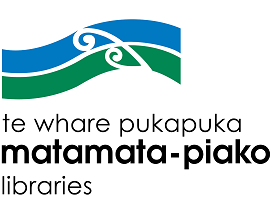There is current debate about how our schools are teaching reading - even researchers from two universities (University of Auckland and University of Canterbury) have different points of view. The media has bought this to our attention again on the TV3 show Paddy Gower has issues which aired at the end of May 2023. “In a global study of 400,000 children in over 60 countries - known as PIRLS - New Zealand has fallen from 13th place in 2001 to 27th place in the data released last week.”1
There is so much information on the internet around literacy and teaching children to read, and you soon can go down a rabbit hole of information. We've collated some of the best advice we could find to bring you these key pieces of advice.
While most children learn to read after they begin school, learning about reading ideally begins much, much earlier. Children learn from reading long before they learn to read.”2
What can you do to help children learn to read?
- Help spark a love of reading as it helps to open up the world to them
- Start young by reading aloud, sit down to read a book together, find a book about things they are interested in
- Visit the library - we have lots of books for a wide age range and interests
- Support how they're learning to read at school with our collection of emergent First Readers section (ask a librarian to show you where these are)
- Over the school holidays, keep up the reading. It doesn't have to be big chunks of time: a smaller chunks of time reading often helps them retain their skills over summer and keeps interest in learning to read higher.
The key factor in all of these comes down to parents, whānau and other caregivers being role models for reading. The National Library has created a great resource on their website about reading at home, with suggestions on how to be a reading role model, how to support them as they read aloud, and suggestions on selecting books to read with children.
“As a reading role model, you have a big influence on your child's or teenager's interest in reading outside of school. One of the best ways you can help is through fostering a love of reading — beginning at birth.
And that role doesn’t stop when children start school. Research shows that your ongoing involvement in your child's reading and learning is more important than anything else in helping them to fulfil their potential."3
If you're interested in the differences between the two key aproaches to reading, you can read more from Auckland University's approach of Reading Recovery at: https://www.auckland.ac.nz/en/news/2021/06/30/inside-the-reading-wars.html and the University of Canterbury's Better Start Literacy approach at https://www.betterstartapproach.com/.
For those learning to read who may have dyslexia, there is some good initial information here Understanding dyslexia | Inclusive Education (tki.org.nz) which describes what dyslexia is, how it effects students' learning, and providing strategies to support learners. The library has a selection of childrens' and adult's books which are printed on special paper and with special fonts which are dyslexic-friendly. Ask one of our staff to show you how to find these.
1. Tupou, Laura. "Paddy Gower Has Issues: New Zealand schools falling behind international literacy rates." Newshub, 25/05/2023, https://www.newshub.co.nz/home/new-zealand/2023/05/paddy-gower-has-issues-new-zealand-schools-falling-behind-international-literacy-rates.html
2. O’Neill, K. "Why Reading Really Matters." Brainwave Trust Aotearoa, 2017, https://brainwave.org.nz/article/why-reading-really-matters/
3. National Library Services to Schools. "Reading at home." https://natlib.govt.nz/schools/reading-engagement/family-whanau-and-community-connections/reading-at-home

